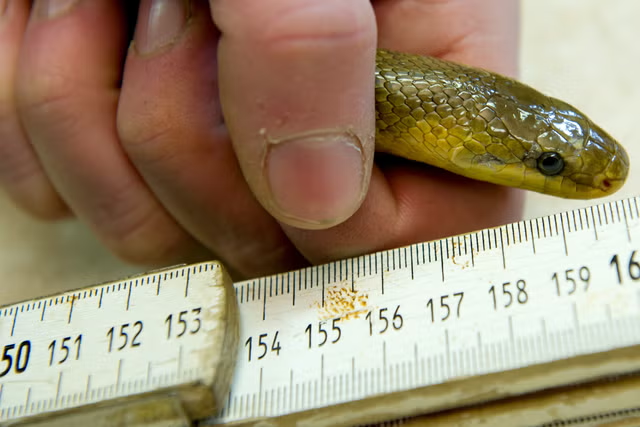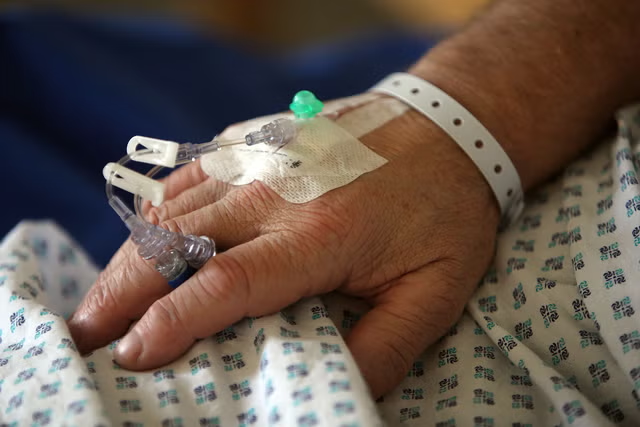There are endless hacks, tips and tricks for how to improve body odor circulating on social media, but are they actually helpful?
For instance, a recent video by beauty TikTok content creator @bambidoesbeauty recommends washing armpits with benzoyl peroxide cleanser, a powerful antibacterial gel that is sometimes prescribed to treat acne.
In the video, Bambi said: "I don't know who needs to hear this, but the secret to getting rid of body odor isn't deodorant," claiming that the benzoyl peroxide hack would "change your life" by making sweat smell completely odorless.
However, Professor Gavin Thomas, a microbiologist at the University of York, England, told Newsweek that humans should smell—at least a little bit.
"Biologically, all humans will produce odor, derived from the microbial conversion of chemicals we secrete from our sweat glands into volatile chemicals," he said.
In other words, there are microorganisms such as bacteria living on our skin and these convert our sweat into other chemicals that can smell a bit funky.
"In the 20th century, we have tried to block this as much as possible, but we have smelt through millions of years of evolution!" Thomas said. "Other mammals use microbially derived odor to communicate, so it's not impossible that our smell was an important part of our own evolution."
Dr. Alain Michon, a dermatologist at Project Skin, Ottawa, had a slightly different opinion, telling Newsweek that "humans will start to smell if bacteria is left on the skin too long."
He added: "Certain bacteria can cause more intense body odor, even if the person is not sweating that much. Conversely, a person can be very sweaty but not have a lot of bacteria on the skin, and therefore the odor may be less noticeable."
Thomas got right into the science, explaining that "the most pungent component" of body odor was down to thioalcohol molecules and certain bacteria such as Staphylococcus hominins.
"[They] are able to take odorless chemicals that we secrete in our apocrine glands—found in our underarms and genital areas—and partly eat them, to get some food for themselves, and then spit out sulfur-containing molecules, that are volatile and very smelly," Thomas said. "There are a whole number of other molecules called volatile fatty acids, which, are made in similar ways by other components of the skin microbiome, which are also major parts of our overall body odor."
The makeup of our own individual skin microbiomes contributed to our own distinct mix of odors, Thomas explained, so keeping it healthy was key to smelling good.
"Your skin is the outermost barrier of defense against pathogens, so it is very important to take care of it," Michon said. "A balanced skin microbiome will have low levels of healthy bacteria that help prevent the growth of potentially harmful microbes."
As for their advice for smelling lovely, Thomas said his team of researchers were trying to understand how bacteria made body odor, which could help us in the long run to stave off stench without altering the skin microbiome too much.
But Michon said that some tips, including @bambidoesbeauty's benzoyl peroxide body wash, could help target smelliness by killing problematic bacteria.
"Benzoyl peroxide is one of the antibacterial products recommended for spot-treating bacterial overgrowth that causes body odor," he said. "Using it in the armpit areas while showering can help reduce the bacteria levels on the skin so that when you sweat, there is less odor."
Michon warned that benzoyl peroxide's active ingredient could dry out the skin, so it was important to moisturize afterwards.
And he said the overuse of this product could irritate the skin since overusing antibacterials might disrupt the skin microbiome.
All sorts of people have shared all sorts of opinions on deodorants and antiperspirants too. There are concerns from some online about antiperspirants containing aluminum, a heavy metal that is sometimes considered an "antinutrient" that prevents the body from absorbing beneficial nutrients.
"Generally, deodorants mask the smell with another smell, while antiperspirants stop the sweat being made," Thomas explained. "Aluminum is normally found in antiperspirant—not so much in deodorant. This blocks the sweat glands as well as having an antibacterial function."
Michon said choosing a deodorant or antiperspirant was just a matter of personal preference.
"Try both products and see what works best for you," he said. "If unsure about certain ingredients, consult your skincare specialist, who can give you a better idea based on your skin type."
Michon added that individuals concerned about their body odor should check that it isn't due to any underlying health conditions such as an overactive thyroid or infectious disease.
"Many other conditions can cause overly active bacteria, and hormones play a large role," he said. "So, speak to your doctor if you have suspicions or other symptoms. Diet can also play a part in some cases but to a lesser extent. You may want to avoid sweat triggers if you have an overproduction of sweat or look into treatments such as botulinum toxin for hyperhidrosis."
Do you have a tip on a food story that Newsweek should be covering? Is there a nutrition concern that's worrying you? Let us know via science@newsweek.com. We can ask experts for advice, and your story could be featured in Newsweek.
Disclaimer: The copyright of this article belongs to the original author. Reposting this article is solely for the purpose of information dissemination and does not constitute any investment advice. If there is any infringement, please contact us immediately. We will make corrections or deletions as necessary. Thank you.



